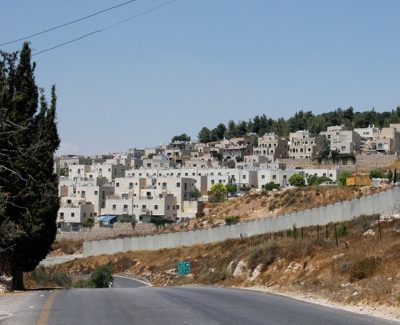The Israeli Cabinet has approved a colonialist project to construct a tunnel between the Palestinian towns of Al-Eizariya and Al-Zaim, located east of occupied Jerusalem, in order to link the Ma’ale Adumim illegal colony with Jerusalem while imposing severe restrictions on Palestinian access to vital routes.
The decision aims to establish territorial continuity between Ma’ale Adumim and occupied Jerusalem while prohibiting the Palestinians from using it.
The plan would disrupt Palestinian movement, severing key routes connecting Bethlehem and Hebron to Jericho and the central and northern West Bank.
Originally proposed by Defense Minister Yisrael Katz, the initiative has faced years of delays under prior administration.
Katz has now pushed forward the plan, which advocates for segregated roads exclusively accessible to Israelis, forcing Palestinians to use alternative routes.
The tunnel project, part of what is referred to as the “Fabric of Life” road, has a budget of 335 million shekels ($92 million).
Funds for the project have been allocated from the so-called “Civil Administration Supplementary Fund,” which collects fees from Palestinians in the West Bank for infrastructure projects.
“The Jewish Press” media agency described the project as a strategic effort to solidify Israeli control over the area while curtailing what it characterized as Palestinian territorial claims.
The publication referenced the long-running Israeli efforts to control al-Khan al-Ahmar Palestinian village after displacing its inhabitants, a location pivotal to Palestinian aspirations of creating geographically contiguous territories.
Efforts to advance the “Fabric of Life” initiative began as far back as 2008, when the Israeli High Court delayed its progress to evaluate alternative routes for Palestinian traffic.
Later that year, the court approved segments of the plan, including the construction of access routes connecting Palestinian villages in the Modi’in area to Ramallah. The newly approved third phase represents a significant escalation in the broader infrastructure strategy.
The tunnel project has drawn criticism from human rights groups, who argue that restricting Palestinian movement and access to essential roads exacerbates existing tensions and violates international legal standards.
All of Israel’s colonies in the occupied West Bank, including those in and around occupied East Jerusalem, are illegal under International Law, the Fourth Geneva Convention in addition to various United Nations and Security Council resolutions. They also constitute war crimes under International Law.
Article 49 of the Fourth Geneva Convention states: “The Occupying Power [Israel] shall not deport or transfer parts of its own civilian population into the territory it occupies [Palestine].” It also prohibits the “individual or mass forcible transfers, as well as deportations of protected persons from occupied territory”.

